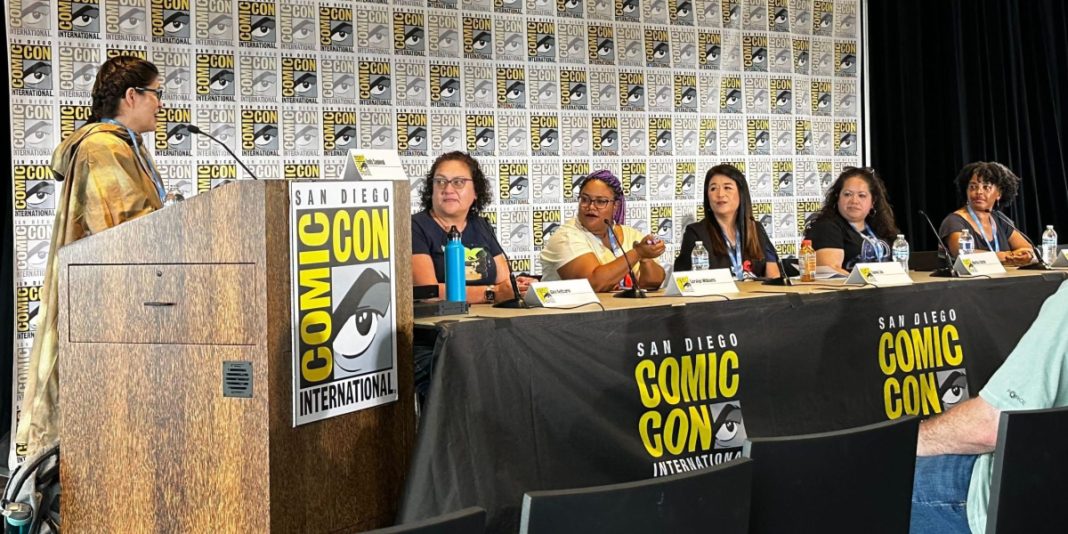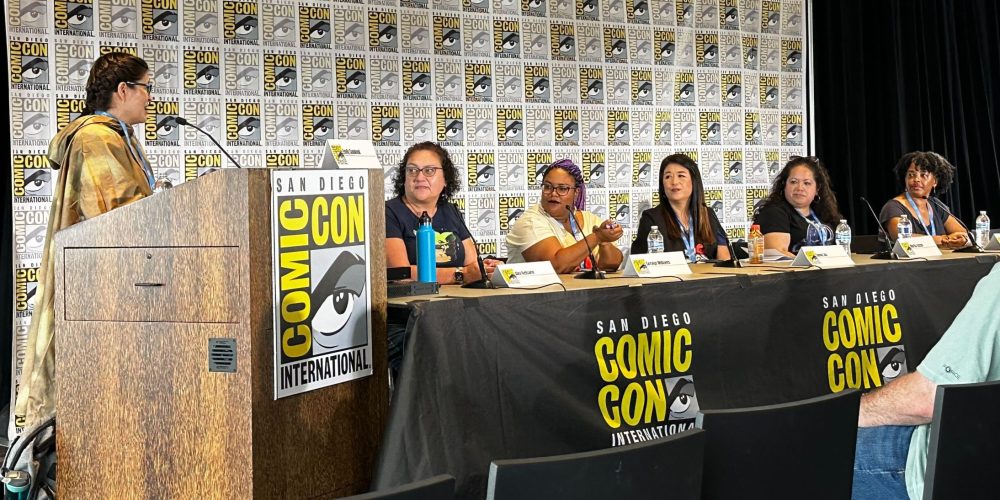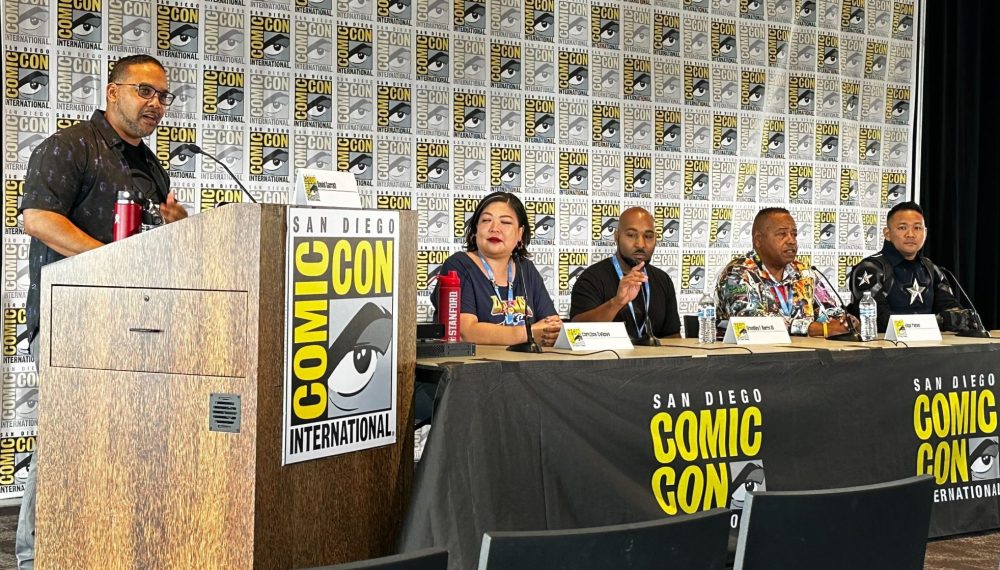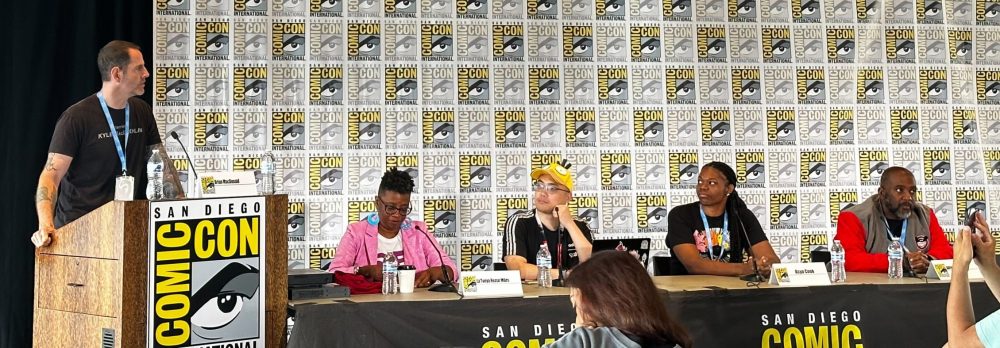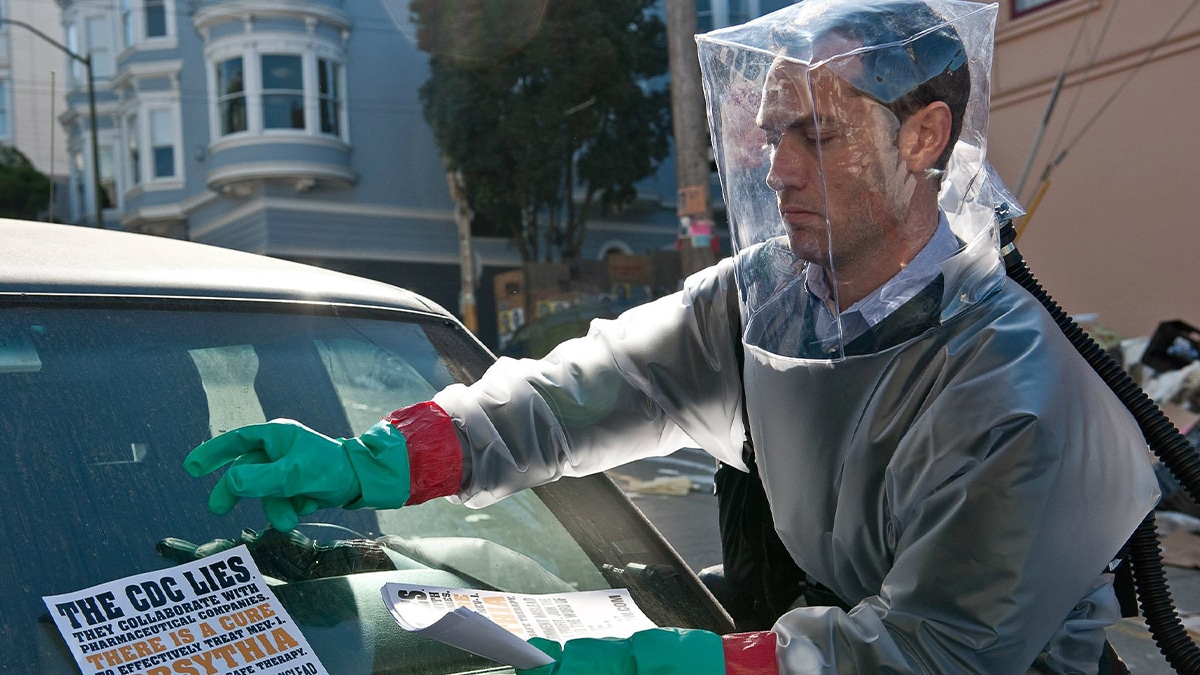By Ani Bundel
GeekEd first began at San Diego Comic-Con back in 2011 as a group of academics who also happened to be nerds. The program, which was co-founded by Dr. Emily Sandoval, has slowly grown over the last decade into a powerhouse series of panels every year where nerd culture and academia cross their streams. Sunday afternoon at the San Diego Public Library was dedicated to “GeekEd” panels using different aspects of fan culture to talk about different aspects of diversity faced across both the academic world and fandom
Dr. Sandoval opened the trio of panels with “The Marvels.” She brought the highly decorated panel of UC Berkeley’s Dr. Sunny Lee, UC Santa Cruz’s Alex Belisario, the Pace Center’s Geralyn Williams, CSU Fullerton’s Dr. Martha Enciso, and UC Irvine’s Dr. Marcelle Hayashida to talk nerd culture and academia for women of all different stripes.
The panel discussed their favorite non-white male heroes in popular culture, and how they use their nerd cred to connect to their students. They also cited the heroes they hold up to emulate as they push into male-dominated spaces. They also discussed what upsets them in fandom, including in inability to give women interiority or aren’t willing to put in the work to explore the reality of being a woman in the superhero space. (That included a spirited discussion of if She-Hulk was worth it because it stayed so surface level in a comedy realm, rather than exploring the deeper parts of Jennifer’s experiences.)
The second panel, “Caring for the Nerd Mind,” was the same discussion, but angled for those working in higher education and mental health discussing the applications of their fandom to connect with students in crisis. University of Oklahoma’s Dr. David Surratt led a panel of Stanford’s Christine Catipon, College of the Siskiyous’ JonJon Junpradub, and USC’s Edgar Palmer and Greedley F. Harris III in discussing how to get students to trust them. Palmer’s perspective was especially interesting, as unlike the others, he’s not an educator or a mental health expert, but a first line responder. As a cop, who kids do not trust on sight, his office being filled with nerdy toys is a step towards helping them view him as a human being, and someone they can talk to. He also spoke frankly about the suicide crisis on campus and the steps USC took to train their first responders and hire those who have better skills to handle those sorts of situations.
The final GeekEd panel of the day (and the convention) was “Lessons from The Snap,” which moderator UCLA’s Brian MacDonald said is the panel that tied these discussions together. Since March of 2020, higher education professionals had to change the way they approached working with students and colleagues, not just going to virtual and then back, but a whole lot of social change that occurred in between from Black Lives Mater to the trans community speaking up for the first time as a group. MacDonald also stressed that though the panel has a fun title referring to the Marvel “Snap,” but that he knows the pandemic was and is no laughing manner.
MacDonald’s panel featured the return of Alfred Day, plus the new additions, USC’s Peter Limthongviratn, Occidental College’s Aysa Cook, and La’Tonya Rease Miles, a Higher Ed Consultant. The group discussed one of the big problems being the lack of students and faculty. Students have started questioning the value of college, and taking gap years, or heading into the workforce. There’s also a lot of those who dropped out, not just during the pandemic, but prior to it. At the same time, there’s a dearth of faculty. The pandemic made a lot of people reconsider their life choices, and walk away wholesale from their chosen profession. It’s an understandable reaction to the global trauma of people dying en masse, and as Day reminded us (as if we could forget) a contentious election that ended with an insurrection.
As Day sees it, pop culture isn’t just an escape, but how we are processing this massive change we’re experiencing. It’s not just a way to reach out to students, it’s the way we can work together to come out the other side. And it’s the way we can speak up for ourselves and institutions try to force us all back to the old model, instead of embracing the future. It was a hopeful discussion, fit for the ending of one of the most radically different SDCCs in recent memory. May we all use pop culture to help ourselves find a way forward.
Miss any of our earlier SDCC ’23 coverage? Find it all here!


